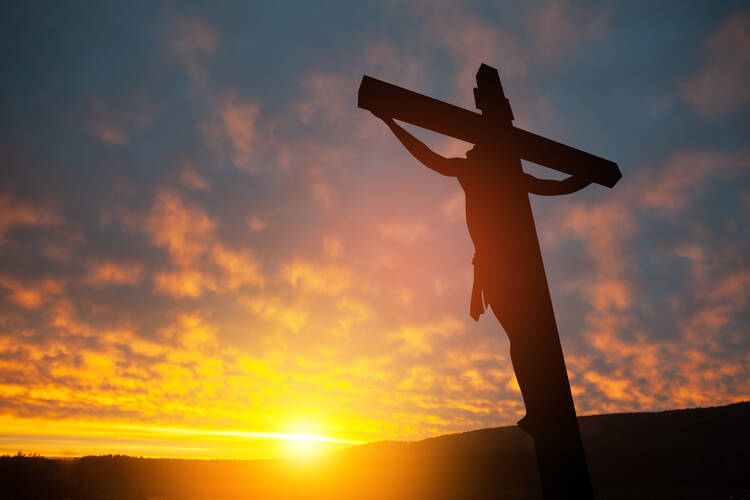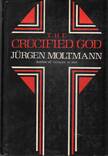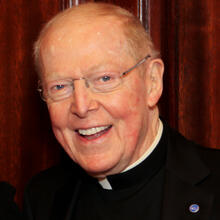The late Protestant theologian Jürgen Moltmann asked: How can we find a human God in a dehumanized world?
Editor’s note: This book review originally appeared in America on March 15, 1975. Jürgen Moltmann died on June 3, 2024, at the age of 98.
This is clearly Jürgen Moltmann’s most important book since Theology of Hope 10 years ago. In his earlier work, Moltmann put the recovery of eschatology in service of a newly hopeful and future-oriented Christian reflection. The focus of his writing was on God’s coming Kingdom through the resurrected Christ. His major philosophical stimulus derived from Ernst Bloch, who was then known to few readers in this country.
In The Crucified God Moltmann examines our common past for the source of our future hope of resurrection. His focus is on God’s identification, through the cross of Christ, with the sufferings of man. His philosophical dialogue is chiefly with the Frankfurt school of critical theory, especially its early leaders Max Horkheimer and T. W. Adorno. His critical question is: How can we find a human God in a dehumanized world?
Moltmann continues to agree with J. B. Metz that “every eschatological theology ... must become a political theology, that is, a (socio-) critical theology.” He knows well that this effort has caused a confusion of identity for many Christians involved in social issues. Luther’s theology of the cross was proposed as a criticism of the church, he recalls; it must now be radicalized so as to be a criticism of society as well. “The path of a theology of the cross that is critical of society,” he warns, “goes between irrelevant Christian identity and social relevance without Christian identity.”
The book is most persuasive in its three central Christological chapters, which develop the theme that a new future for God, man and the world is inaugurated through the crucifixion of Jesus. Here Moltmann takes an earlier thesis on the reciprocal relationship between historical and eschatological method and applies it to the “trial of Jesus”—testing the revelation of God’s truth in Jesus analogously to the way a question of justice is “tried” in human society. Jesus’ death is understood as a consequence of His ministry. Because of what He preached and lived, He was condemned, publicly executed, “God-forsaken.” (For Moltmann, exaggeratedly in my opinion, Jesus’ final cry from the cross in Mk. 15:37 implies God’s abandonment).
Since it is this crucified man whom God has raised from the dead, God’s love is revealed in His death for all who are sinful and godless. It is thus the death of Jesus, as the man condemned by the law and abandoned to suffering by His Father, that gives significance to the Resurrection of Christ, who is raised from the dead to be the first of all those embraced by God’s promise of new creation.
Three succeeding systematic chapters explore the implications a theology of the cross has for specifically Christian views of God, man and society. “Which God motivates Christian faith,” Moltmann asks, “the crucified God or the gods of religion, race and class?” In the book’s longest and most provocative chapter, he argues that the crucifixion is an event between God and the Son of God and implies a history of suffering within God himself, suffering that redemptively includes the history of human suffering. To date, most critics have found Moltmann’s demand for a Trinitarian ground for the theology of the cross more compelling than his thesis that the active suffering of God for man involves process within God’s own life. At least, it is not clear to me how Moltmann avoids replacing monotheism by tritheism, or immutability by a passing event.
Further discussion of Moltmann’s book would do well, I think, to ask what more precisely he means by “dialectical identity.” This is probably the pivotal philosophical concept in the book, the tool by means of which Moltmann examines the paradox of God’s crucifixion and the strain between Jesus’ death in history and His Resurrection into the eschaton. But the epistemological principles that relate to it are suggested more than they are explored. What really is meant when we speak of finding identity in nonidentity, or of understanding history and eschatology as dialectically united?
These questions could also deepen our appreciation of the contribution critical theory might make to Christian thought. But whatever the outcome of the dialogue, Moltmann has already rendered the church and its theology a signal service.











